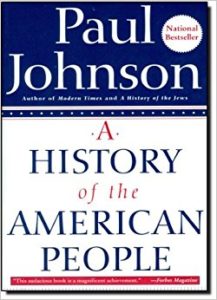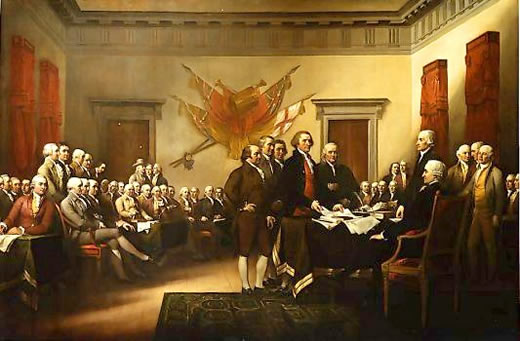As a professor for nearly thirty years, my aim has been to instill solid Biblical principles and sound historical teaching based on original sources and insightful secondary works, with the ultimate goal that students would be able to see for themselves how those principles and sources reveal truth.
The trendy phrase is “to develop critical thinking.”
Professors/teachers sometimes wonder how successful this endeavor has been, especially when teaching a class that few of the students seem to care about or when mired in all that grading.
Despite discouragements along the way, I’ve never doubted God’s call on my life for any serious length of time. And then there are those encouragements that pop up unannounced, like the e-mail I received from a recent Southeastern history major who graduated and is now teaching high school at a classical academy.
With his permission, I’m going to share what he is experiencing.
He began by commenting that my blogs this past week on Aleksandr Solzhenitsyn were “wonderful.” That was the first encouragement, but it was only the beginning.
 He just finished teaching an American history/literature class based on a Socratic method of questioning. He then related that he began the course with a thoughtful quote from the book I use in my American history survey courses, Paul Johnson’s A History of the American People. He used it to spur their thinking; it became the cornerstone of everything they studied during the semester. Here’s the quote he used:
He just finished teaching an American history/literature class based on a Socratic method of questioning. He then related that he began the course with a thoughtful quote from the book I use in my American history survey courses, Paul Johnson’s A History of the American People. He used it to spur their thinking; it became the cornerstone of everything they studied during the semester. Here’s the quote he used:
American history raises three fundamental questions. First, can a nation rise above the injustices of its origins and, by its moral purpose and performance, atone for them?…
The Second question provides the key to the first. In the process of nation-building, can ideals and altruism—the desire to build the perfect community—be mixed successfully with acquisitiveness and ambition, without which no dynamic society can be built at all?…
Thirdly, the Americans originally aimed to build an other-worldly “City on a Hill,” but found themselves designing a republic of the people, to be modeled for the entire planet. Have they made good their audacious claims? Have they indeed proved exemplars for humanity? And will they continue to be so in the new millennium?
Is that typical fare for a typical high school? I doubt it. My former student was up to the challenge of helping these students think through American history with that as the backdrop.
What he described next stirred my heart:
My class spent a full two hours dissecting this quote in an attempt to mine its meaning and see what kind of answers we could put forth. To say the least, the students’ answers were antiquated and bereft of any deep historical knowledge.
So, for the rest of the year I used Paul Johnson’s work as a supplementary guide to my lectures, and tried my best to emphasize the principles you taught me in undergrad about self-government, constitutionalism, the need for citizens of a democratic-republic to adhere to moral/religious principles, etc.
I had students read and discuss the Mayflower Compact, Plymouth Plantation, the Declaration, the Federalist Papers, Jefferson’s anti-federalist essays, the Constitution, Democracy in America (which we spent two weeks on), the Lincoln-Douglass debates, Fredrick Douglass’s Narrative Life of a Slave, Walden, and much more.
Note two things here: first, the principles he saw as important; second, the original sources he used to explore those principles.
But he didn’t stop there with just the first part of American history; he went on to examine the philosophies that arose to undercut those founding principles:
Along with all these great works of American literature and political philosophy, I also spent a substantial amount of time teaching students about Marxism, communism, the eugenics movement (including Margaret Sanger’s contributions), and the advent of progressive welfare politics.
My students were horrified and amazed that although they had heard many times about the 11 million people killed by Hitler’s regime, they had never heard about the 19 million (or more) killed by Stalin’s regime, the 40 million (or more) killed by Mao’s regime, and the 200,000 (or more) killed by Pol Pot’s regime.
They were even more surprised to learn that “Nazism” stood for “National Socialism.” Our all-too-brief lesson on Whittaker Chambers and the Hiss Case was also a big hit with the students. Although most of my lectures focused on the overall narrative of American political/social history, I couldn’t help going off on these very important tangents.
What a joy it was to learn that these students were being exposed to facts, ideas, and principles that weren’t the focus of their thinking prior to his class. What did the students actually learn? What did they take to heart?
Yesterday was our very last class of the year, and I asked students to discuss Paul Johnson’s questions again to see if they could arrive at different answers based on what we learned this year. Their responses were absolutely fascinating.
They pointed out (without any prompting from me) that the ideals of human rights, the dignity of the individual, the fallen nature of man, private property, and self-government were principles that truly made the U.S. a “city on a hill.”
They also pointed out that nearly all of the many failures and injustices that our country has perpetrated were violations or rejections of these founding principles. I then asked the class “where do these ‘rights’ come from? What gives us the impression that all human beings possess intrinsic dignity? What grounds these American ideals?”
The answer to his question?
One of my very intelligent students pulled out the Declaration of Independence and read the opening words aloud with an emphasis on “our Creator.” It was a very fulfilling moment for me, and a confirmation of how important these lessons are.

The final encouragement—a personal one—concluded his e-mail when he wrote, “I just thought you would like to know that your lessons did not fall on deaf ears, and are already being reproduced in the minds of my own students. Thank you for your commitment to Christ-centered scholarship and education.”
For all you teachers reading this, please know that what you do is significant. Even when you don’t see immediate results, you don’t know what’s going on inside your students. I had no doubts about this former student; I knew he was solid. But there are others you may never hear from who have been impacted by what you have said and, even more important, how you lived your Christian faith before their eyes.
Be encouraged today.
